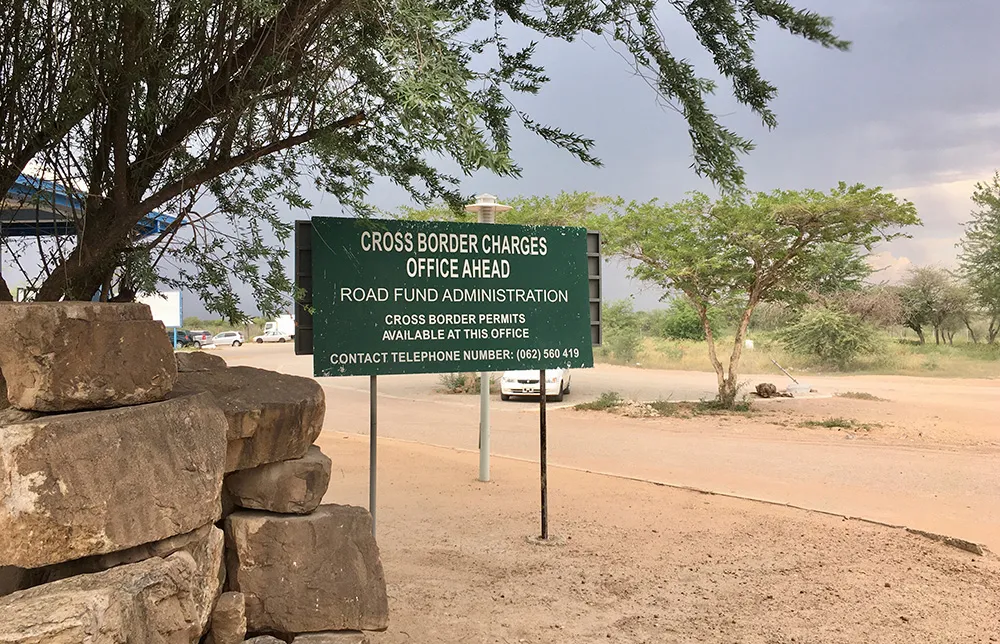Melbourne’s road users are the focus of a year-long study into what options are possible for funding road infrastructure projects including various user-pays models.
The study headed by Australian toll roads operator Transurban will conducted across Melbourne’s entire road network to see how drivers react to tolling and other road-use models such as charging motorists for each kilometre travelled, a charge to access roads, annual fixed costs per kilometre on expected usage and price per trip.
It will al
June 23, 2015
Read time: 4 mins

Melbourne’s road users are the focus of a year-long study into what options are possible for funding road infrastructure projects including various user-pays models
The study headed by Australian toll roads operator891 Transurban will be conducted across Melbourne’s entire road network to see how drivers react to tolling and other road-use models such as charging motorists for each kilometre travelled, a charge to access roads, annual fixed costs per kilometre on expected usage and price per trip.
It will also look at the effect of charging people to come into the city. In the UK, London has widely adopted such a model, its Congestion Charge. The study will also consider how different models affect drivers’ decision of how they use the road network
Unless funding models for infrastructure development are overhauled, the country’s major cities, especially Melbourne, risk a decline in liveability, said Transurban chief executive Scott Charlton, an outspoken critic of infrastructure funding.
Despite significant progress by Australia’s state governments, traditional funding systems were outdated, unsustainable and unfair said Charlton, who also spoke in early May at the first713 International Road Federation (IRF) – RA Regional Conference for Asia and Australasia, held in Sydney.
The conference, which coincided with the United Nations’ Global Road Safety Week, focussed on road safety, innovation and value-for-money procurement and delivery of infrastructure.
Charlton said it was imperative that Australians understood the implications of continuing with the century-old funding model, based on fuel excise and fixed costs including licence and motor registration fees.
Recent independent research, conducted by EY Sweeny and commissioned by Transurban, found that 60% of city motorists favoured a user-pays system while only 15% believed the answer was increased fees and higher petrol taxes to fund major road infrastructure.
Also, 57% of motorists said a user-pays system was fairer for all motorists than a flat-fee approach that was favoured by only 31%.
“Without further significant investment in infrastructure everything we love about the liveability of our big cities is at risk. We must be willing to have a national conversation about how to plan for the future and our expected population growth,” Charlton said. “Our congestion levels are heading to the levels of the world’s most gridlocked cities, with drivers in Sydney and Melbourne sitting in traffic for more than 120 hours a year by 2050.”
Charlton acknowledged that all levels of government recognised the need for major projects and upgrades to critical transport systems. However, these efforts are like running fast to just stand still. These projects were about keeping pace and ensuring Australia did not fall further behind in addressing the needs of its growing population.
“We support government initiatives in the provision of new transport infrastructure, particularly in New South Wales and Victoria [states] where they recycle capital into new roads and rail infrastructure. But the states still remain constrained by a 100-year-old funding model,” Charlton said.
“Australia needs a funding model that is built on a principle of those who benefit, pay, while ensuring fairness across the community. This kind of system would give us a sustainable funding model to plan ahead for the next half century and encourage more efficient use of infrastructure while lessening the long-term investment burden.”
Charlton said a number of user-pays systems were being trialled or in operation overseas and it was time Australia started to explore what model could work best here.
Transurban’s study will test various road pricing models and provide tangible data that would help create options for a sustainable funding model, he said. The Road Network Pricing Study would be conducted in Melbourne across the whole road network, using volunteers from Transurban’s customer base.
Several types of user-pays models will be tried, including a distance-based, per kilometre charge; annual fixed costs per kilometre based on expected usage; and price per trip or charge to access the road network. The exercise would also explore other models being employed throughout the world including time-of-day pricing on the network and a charge for entering the central business district.
Transurban will compare the impact of these models on existing funding sources of fuel excise and registration and gauge drivers’ preferences to the schemes.
Transurban is working with telecommunications company Singtel Optus and navigation, map and traffic service provider3972 TomTom, as well as analytics software specialist QuantumIT. Together they will investigate new technologies in road network operations, network mapping and navigation and analytics.
“Technology has been one of the barriers to a wider user-pays system but we now have a host of new opportunities,” said Charlton.
“We look forward to working with government and our partners to look at how those opportunities have the potential to enhance the management of vehicle, roadside and customer systems.”
The study headed by Australian toll roads operator
It will also look at the effect of charging people to come into the city. In the UK, London has widely adopted such a model, its Congestion Charge. The study will also consider how different models affect drivers’ decision of how they use the road network
Unless funding models for infrastructure development are overhauled, the country’s major cities, especially Melbourne, risk a decline in liveability, said Transurban chief executive Scott Charlton, an outspoken critic of infrastructure funding.
Despite significant progress by Australia’s state governments, traditional funding systems were outdated, unsustainable and unfair said Charlton, who also spoke in early May at the first
The conference, which coincided with the United Nations’ Global Road Safety Week, focussed on road safety, innovation and value-for-money procurement and delivery of infrastructure.
Charlton said it was imperative that Australians understood the implications of continuing with the century-old funding model, based on fuel excise and fixed costs including licence and motor registration fees.
Recent independent research, conducted by EY Sweeny and commissioned by Transurban, found that 60% of city motorists favoured a user-pays system while only 15% believed the answer was increased fees and higher petrol taxes to fund major road infrastructure.
Also, 57% of motorists said a user-pays system was fairer for all motorists than a flat-fee approach that was favoured by only 31%.
“Without further significant investment in infrastructure everything we love about the liveability of our big cities is at risk. We must be willing to have a national conversation about how to plan for the future and our expected population growth,” Charlton said. “Our congestion levels are heading to the levels of the world’s most gridlocked cities, with drivers in Sydney and Melbourne sitting in traffic for more than 120 hours a year by 2050.”
Charlton acknowledged that all levels of government recognised the need for major projects and upgrades to critical transport systems. However, these efforts are like running fast to just stand still. These projects were about keeping pace and ensuring Australia did not fall further behind in addressing the needs of its growing population.
“We support government initiatives in the provision of new transport infrastructure, particularly in New South Wales and Victoria [states] where they recycle capital into new roads and rail infrastructure. But the states still remain constrained by a 100-year-old funding model,” Charlton said.
“Australia needs a funding model that is built on a principle of those who benefit, pay, while ensuring fairness across the community. This kind of system would give us a sustainable funding model to plan ahead for the next half century and encourage more efficient use of infrastructure while lessening the long-term investment burden.”
Charlton said a number of user-pays systems were being trialled or in operation overseas and it was time Australia started to explore what model could work best here.
Transurban’s study will test various road pricing models and provide tangible data that would help create options for a sustainable funding model, he said. The Road Network Pricing Study would be conducted in Melbourne across the whole road network, using volunteers from Transurban’s customer base.
Several types of user-pays models will be tried, including a distance-based, per kilometre charge; annual fixed costs per kilometre based on expected usage; and price per trip or charge to access the road network. The exercise would also explore other models being employed throughout the world including time-of-day pricing on the network and a charge for entering the central business district.
Transurban will compare the impact of these models on existing funding sources of fuel excise and registration and gauge drivers’ preferences to the schemes.
Transurban is working with telecommunications company Singtel Optus and navigation, map and traffic service provider
“Technology has been one of the barriers to a wider user-pays system but we now have a host of new opportunities,” said Charlton.
“We look forward to working with government and our partners to look at how those opportunities have the potential to enhance the management of vehicle, roadside and customer systems.”









